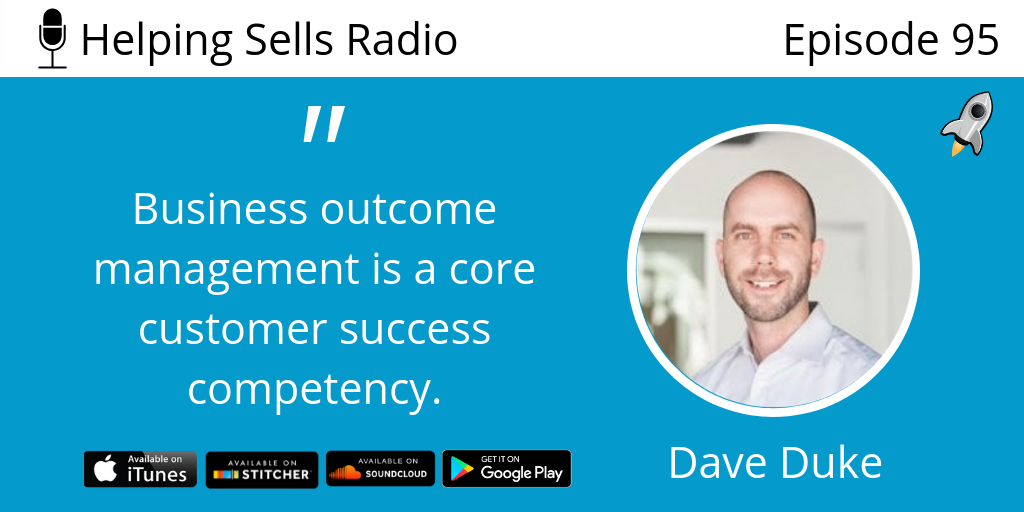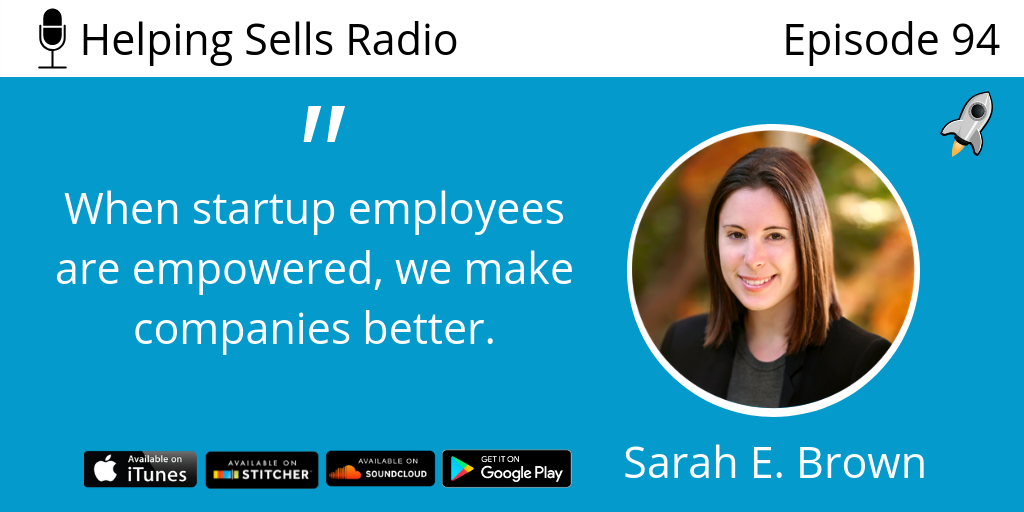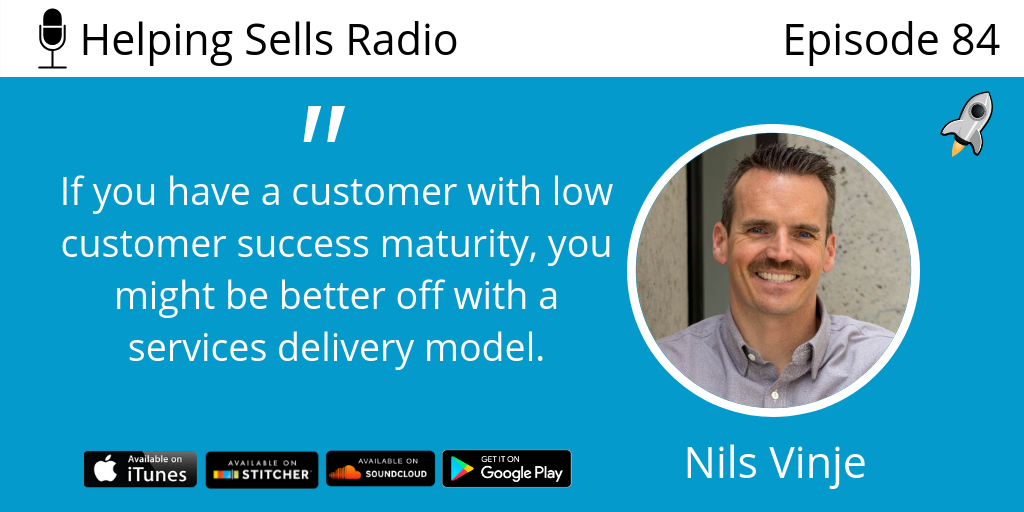Jay Gibb is the founder and CEO of a B2B SaaS company called CloudSponge and a partner at a distributed software engineering consulting agency called Arizona Bay. Arizona Bay builds software products for its clients, usually SaaS products. Roughly 10-20% of Arizona Bay's customers are "ideal customers." An ideal customers in this case is defined by someone who comes to Jay and already has pre-sold an unbuilt software product. Think about that. Jay's customer has sold, to their customer, a software product....then they go to Jay and ask his firm to help them build it. Jay, his customer, and the customer's customer get together and start making it happen. But this isn't even the best part of the story.
If you are a regular listener of Helping Sells Radio, you know that whenever we have a guest on the show to talk about customer success, pick challenge them (I'm putting that nicely here in the show notes) on the idea that customer success is really not yet about customer success and more about "our" success. I ask when are we going to change that and actually start talking about customer success. Well, we have two customer success guests on this episode, and they have an answer to the question. And the answer is: business outcome management. Dave Duke, Co-founder and Chief Customer Officer at MetaCX, and James Scott, General Partner of the Customer Success Practice at SuccessHacker explain that business outcome management is a core customer success competency (or should be) that provides a team a methodology for helping customers achieve business outcomes.
Ep. 94 | Sarah E. Brown Grow Your Startup Career When You're Not the Founder
Sarah E. Brown, author of Power to the Startup People: How to Grow Your Startup Career When You're Not the Founder, wants to help people evaluate whether and how to build a career in startups. As we talk about on the show, most of what is written about startups is for the founder. Little-to-none has been written to help employees. Until now. Working at a startup can be fun and exciting and enriching and lucrative. Working at a startup can also be stressful and purposeless and cliche and unprofitable. To make matters worse, one startup might be a perfect fit for you, but a terrible match for your best friend, who you think is so much like you. In other words, working at startups is not for everyone. The point is to evaluate what you want out of your career and see how that matches up with what startups can offering. You need to look for a fit.
Nils Vinje, from Glide Consulting, just gave me a new perspective on customer success readiness at SaaS companies. Although Jason Lemkin says customer success is a single digit hire, and he may be right most of the time....Nils says, "Not so fast." According to Nils, when to hire customer success depends on the maturity level of your customer. "It's wonderful to disrupt a market. However, it's also terrible to disrupt a market." Said another way, it's good to "have the first solution" to a problem because it's a greenfield opportunity. BUT. "If there has been no solution there prior, there is no ownership in that organization for that particular function. There are no processes. There are no people who run those processes. The customer will therefore need a lot more help than a customer success organization can or should provide.
Ep. 65 | Kyle Jepson and Josh Harcus Increased Revenue 6X By Training Sales To Help
| Josh Harcus |
Kyle Jepson |
"What can I help you find?"
That's the question Josh Harcus used to grow revenues at Hüify 6X in a one year period. We heard about this story from Kyle Jepson at a HubSpot event and we just knew we had to invite them on to the show.

-1.png)



.png)


